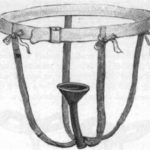The objective of this survey ended up being to identify stresses and coping styles in fathers of newborns, and also to explore if these vary based on pregnancy planning. Data from 69 subjects were collected while using Ireton Personal Inventory and also the Jalowiec Coping Scale. The most typical and least frequently causes of stress or worry were reported. Fathers’ predominant mode of coping was problem oriented. When compared with fathers with planned pregnancies, fathers with unplanned pregnancies were discovered to be considerably more stressed about numerous issues in addition to feeling powerless in adjusting to the appearance of a brand new infant. Implications for practice and research are explored.

Personal injury protection:
The goal ended up being to assess among new fathers their stresses and coping styles and also to determine whether there is different behavior in planned versus unplanned pregnancies. The research was limited to 69 fathers with 4-6 week health infants with no other children under baby, and who’d no prior good reputation for institutionalization for mental health issues. Fathers were employed in the community in particular. The sample incorporated 68% (47) planned and 32% (22) unplanned pregnancies. The mean chronilogical age of the fathers was 29 years. There is wide spectrum of earnings levels. 88% were White-colored, 5% Black, 2% Asian, 3% Hispanic, and a pair ofPercent American Indian. 90% were married. Marriage duration averaged 2.five years. The Ireton Personal Inventory and also the Jalowiec Coping Scale were administered in the School of Nursing in the College of Wisconsin-Milwaukee. The outcomes established that the strain focused on work, family health, finances, and kids. Friendships and marital situation held minimal stress. Considerably greater stress levels were as reported by fathers with unplanned pregnancies subjects with unplanned pregnancies reported stress with finances, circumstances, marital situation, sex, entertainment, and friendships. The most typical coping strategies were attempting to control a scenario, considering methods to solve the issue, discovering much more about the problem, goal setting techniques, and positively attempting to alter the situation. Couple of used the next coping strategies: stoning up, getting mad, feeling hopeless, consuming, crying/getting depressed, or blaming others. The Jalowiec subscales identified problem-oriented, tension-modulating, along with other directed types of coping, that have been similar for those fathers. Fathers did show variations on feeling powerless fathers with unplanned pregnancies had greater scores around the powerless subscales. These bits of information claim that fathers are affected stresses after giving birth, although not (as reported) of crisis proportions. Fathers of unplanned pregnancies are clearly more vulnerable to stress because of feelings of powerlessness as well as in adjusting to a baby. Longitudinal research ought to be forwarded to how stress and coping changes with time and whether attachment towards the child is affected. Nurses ought to be educated to assess fathers’ stresses throughout the pregnancy, as a way of helping fathers cope later.

Resourse: https://ncbi.nlm.nih.gov/pubmed/
 Baby and Mom times
Baby and Mom times 


